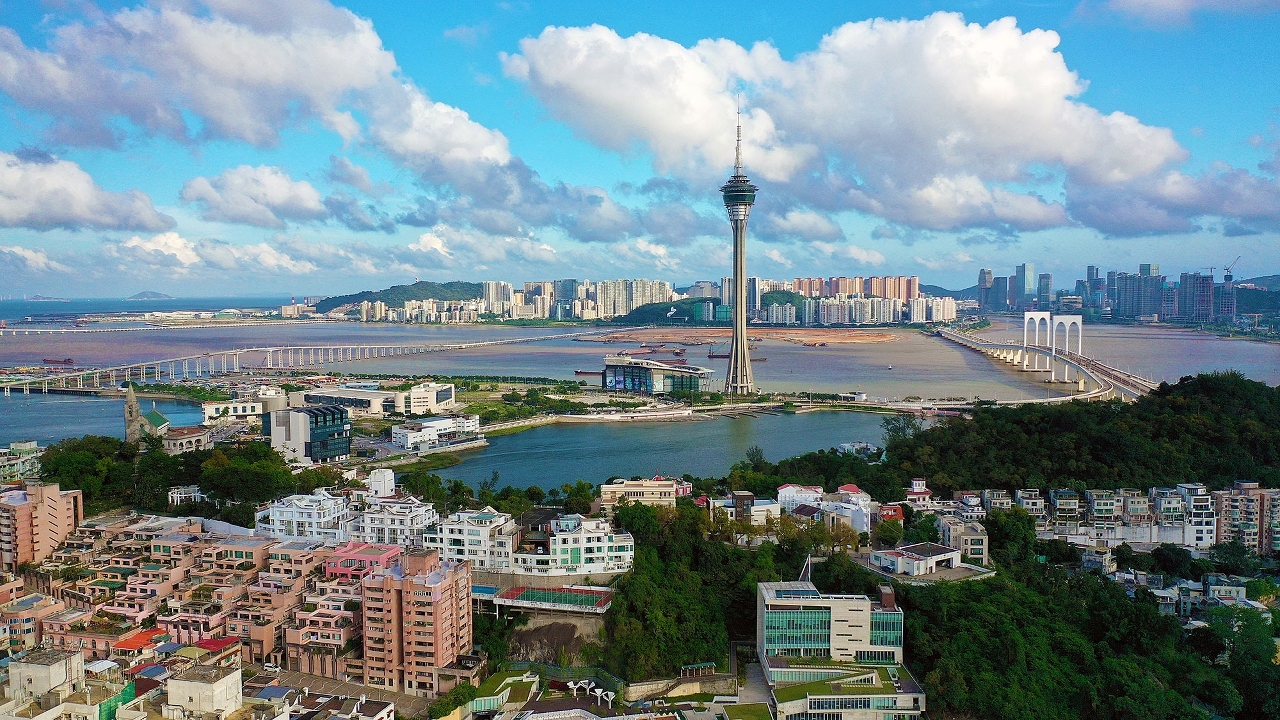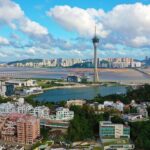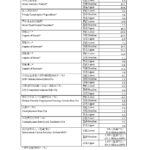 UM releases the revised Macroeconomic Forecast for Macao 2024
UM releases the revised Macroeconomic Forecast for Macao 2024
The Centre for Macau Studies and the Department of Economics of the University of Macau (UM) have released the revised macroeconomic forecast for Macao 2024. Given the apparent slowdown in China’s economic growth, the research team has revised the assumption of the number of visitor arrivals from mainland China in the second half of 2024 to 85% of the same period in 2019. Accordingly, the baseline forecast for Macao’s GDP growth is 12.1% (year-on-year real growth rate), reaching 89.7% of the 2019 level, equivalent to MOP399.3 billion (in chained (2021) dollar). The baseline forecasts for other major economic variables have been revised as follows: the growth of services exports is projected at 15.3%; the growth of private consumption expenditure at 5.8%; the inflation rate at 0.9%; the overall unemployment rate at 1.9%; the unemployment rate among Macao residents at 2.5%; and the Macao SAR Government’s current revenue at MOP112.2 billion.
In 2023, the number of visitor arrivals to Macao began to rebound. In the first quarter of 2024, the recovery remained strong, with a total of 8.88 million visitors, representing 85.7% of the first quarter of 2019. Among them, the number of visitor arrivals from Hong Kong reached 1.82 million, surpassing the level of the first quarter of 2019. The number of visitor arrivals from mainland China reached 6.29 million, which was 84.5% of the first quarter of 2019; while the number of visitor arrivals from other regions totalled 0.77 million, which was 68.5% of the first quarter of 2019. However, in the second quarter of 2024, the recovery began to slow down, with the total number of visitor arrivals at 7.84 million, only 79.0% of the second quarter of 2019. Among them, the number of visitor arrivals from mainland China was 5.25 million, 76.4% of the second quarter of 2019; the number of visitor arrivals from Hong Kong was 1.79 million, 94.2% of the second quarter of 2019; and the number of visitor arrivals from other regions was 0.81 million, 69.8% of the second quarter of 2019. Due to the slowdown in the recovery of visitor arrivals, real exports of services in the second quarter of 2024 only reached MOP73 billion, a year-on-year increase of only 6.1%. Real gaming expenditure by non-residents reached MOP45 billion, a year-on-year increase of 22.6%; while real non-gaming expenditure by non-residents was MOP20.7 billion, a year-on-year decrease of 9.5%. For domestic demand, both private consumption and investment showed stable recovery. In the second quarter of 2024, real private consumption expenditure was MOP28.8 billion, a year-on-year increase of 4.8%, surpassing the level in the second quarter of 2019. Notably, real consumption expenditure on food, beverages, tobacco, and services was strong, while real consumption expenditure on consumer goods and abroad was relatively weak, still below the level of the second quarter of 2019. The gross fixed capital formation was MOP13.1 billion, a year-on-year increase of 6.7%. Prices have remained stable, with the consumer price inflation rate from January to July 2024 at just 1.0%. The inflation rate of food and non-alcoholic beverages, which accounted for the largest share, was 1.4% (with the inflation rate of eating out at 2.7%), and the inflation rate of housing and fuels, which accounted for the second largest share, was 0.4%. The labour market was tight. In the second quarter of 2024, the overall unemployment rate was 1.7% and the unemployment rate among Macao residents was 2.3%, both reaching the low levels of the second quarter of 2019. The overall median monthly employment earnings was MOP17,900, higher than the MOP16,300 of the same period in 2019, while the median monthly employment earnings of Macao residents was MOP20,000, reaching the level of the same period in 2019.
From January to July 2024, the number of visitor arrivals from mainland China was 13.72 million, accounting for 81.3% of the same period in 2019. Based on the above data, the research team has revised the previous assumption of the number of visitor arrivals from mainland China in the second half of 2024 to 85% of the same period in 2019.
Based on the above assumption, the revised baseline forecasts for major economic variables are as follows:
- Macao’s GDP is expected to grow by 12.1%, equivalent to MOP399.3 billion (89.7% of the 2019 level).
- Services exports are projected to increase by 15.3%.
- Private consumption expenditure is anticipated to rise by 5.8%.
- Gross fixed capital formation is forecast to grow by 7.7%.
- The inflation rate (as measured by the GDP deflator) is projected to be 1.3%, with the consumer price index expected to rise by 0.9%.
- Median monthly employment earnings are predicted to increase by 2.8%.
- The unemployment rate is expected to be 1.9%, while the unemployment rate among Macao residents is projected to be 2.5%.
- The Macao SAR Government’s current revenue is anticipated to be MOP112.2 billion.
About the Macroeconometric Structural Model of Macao
The Macroeconometric Structural Model of Macao is a quarterly simultaneous-equations econometric model which covers seven blocks of Macao’s economy: consumption, investment, external trade, prices, government, labour market, and monetary sector. It includes 87 equations and 209 variables. Time series data start from the first quarter of 1998 and is updated once new data are available. Its results provide the community with a timely understanding of the state of Macao’s economy and support prudent decision-making. The model was founded by the late Prof Sir James Mirrlees, Nobel laureate in economic sciences and honorary doctor of social sciences of the University of Macau (UM), as well as faculty members in the Department of Economics of UM. Members of the research team include Chan Chi Shing, researcher in the Centre for Macau Studies; Ho Wai Hong and Gary Wong Ka Kei, associate professors in the Department of Economics; and Kwan Fung, assistant professor in the Department of Economics. The project is now managed by the Centre for Macau Studies of UM.



